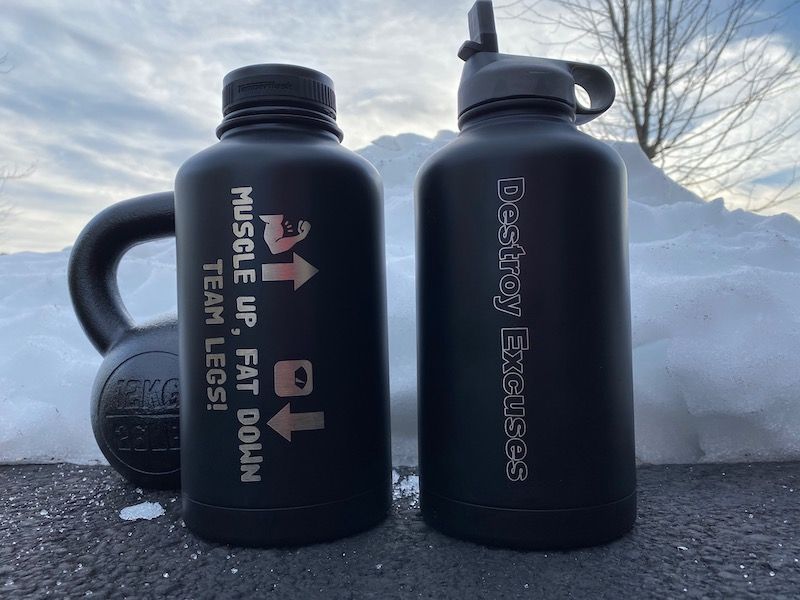Focus on the customer
March 22, 2021
When you only talk about how great your company is, you sound like everyone else and you lose your chance to make a good first impression.

To improve marketing and increase sales, the first thing I do is audit marketing assets (this includes front-line SOPs with potential and existing customers). Invariably, the result is discovering the widespread use of self-centric talking points, and less-than-ideal customer service. The first is much easier to fix than the second. But good customer service is at the core of marketing success. The best companies at this (Nordstrom, Whole Foods, The Container Store, JetBlue, Zappos.com, etc.) all work behind an unspoken (at least in public) mantra of “Good enough is not enough, because good is the enemy of great.”
Generally speaking, the admonition to inflated talking points is something like this: You talk too much about yourself. Your customers and potential customers don’t care about you. They only care about themselves. When you only talk about how great your company is, you sound like everyone else and you lose your chance to make a good first impression.
I need to amend that slightly. Customers do care about your company (sort of), but only in the specific context of a problem they are experiencing. Any information outside of that context is superfluous. If it doesn’t relate to a specific need, it is unwelcome and unnecessary. Blathering on about a company’s history was boring before, now it’s a conversation killer. And with a seemingly infinite number of choices just a Google search away, anything that kills the conversation kills the business. Stop it. Your mom cares you graduated summa cum laude from Harvard. I don’t. You might have failed out of seventh grade, but if your widget scratches my back correctly, or better yet, makes me feel cool or smart or rich (or whatever else I want to feel) while I’m scratching, then I’m going to use it.
Ambiguous claims of paradigm-shifting solutions, and ad nauseum lists of cryptically named products and services do nothing good. (For the record, I refuse to use the words solution or service in ANYTHING I write unless it’s proprietary and I have to use it as an identifier). This is a billboard world, period. Pith is rewarded. And brevity is the soul of sales (and wit).
This lineage can be traced back to amalgamated reading forms like Readers Digest, but finds its best modern example in the early days of rock music when songs were rarely as much as two minutes long. Then, of course came MTV, where programming was made up of short videos for the shorter attention spans created by pop culture’s demand for immediate gratification. A little more than a decade later, 1994 brought an actual paradigm shift, one that would forever change the relationship between marketers and consumers. You may be familiar with it. It’s called the World Wide Web.
Expectations changed once things took hold, and they will never change back. Consumers expect answers immediately. They expect problems to be solved instantly with a spoken question to Siri, or at worst a typed inquiry into Google.
To use a perfect cliché we are living in a perfect storm of conditions for near-perfect marketing. Most companies fail terribly. We are failing, just not terribly. The “me” mentality of the 70’s has been duly inculcated by anyone with a dollar to spend. The immediacy and empowerment of the Internet has established an unprecedented level of entitlement into the process. Together these phenomena have driven the population to share, accidentally or on purpose, layers of metadata that no one could ever previously touch with focus groups (which I would argue are usually pointless) or surveys (which I would argue are hopelessly biased). People lie when you ask them questions. People can’t lie about what they are doing, and they usually leave behind evidence of what they have done. Measure, calibrate, act. Repeat. Until you get it perfect. Full disclosure: you will never get it perfect.
Generally speaking, the admonition to inflated talking points is something like this: You talk too much about yourself. Your customers and potential customers don’t care about you. They only care about themselves. When you only talk about how great your company is, you sound like everyone else and you lose your chance to make a good first impression.
I need to amend that slightly. Customers do care about your company (sort of), but only in the specific context of a problem they are experiencing. Any information outside of that context is superfluous. If it doesn’t relate to a specific need, it is unwelcome and unnecessary. Blathering on about a company’s history was boring before, now it’s a conversation killer. And with a seemingly infinite number of choices just a Google search away, anything that kills the conversation kills the business. Stop it. Your mom cares you graduated summa cum laude from Harvard. I don’t. You might have failed out of seventh grade, but if your widget scratches my back correctly, or better yet, makes me feel cool or smart or rich (or whatever else I want to feel) while I’m scratching, then I’m going to use it.
Ambiguous claims of paradigm-shifting solutions, and ad nauseum lists of cryptically named products and services do nothing good. (For the record, I refuse to use the words solution or service in ANYTHING I write unless it’s proprietary and I have to use it as an identifier). This is a billboard world, period. Pith is rewarded. And brevity is the soul of sales (and wit).
This lineage can be traced back to amalgamated reading forms like Readers Digest, but finds its best modern example in the early days of rock music when songs were rarely as much as two minutes long. Then, of course came MTV, where programming was made up of short videos for the shorter attention spans created by pop culture’s demand for immediate gratification. A little more than a decade later, 1994 brought an actual paradigm shift, one that would forever change the relationship between marketers and consumers. You may be familiar with it. It’s called the World Wide Web.
Expectations changed once things took hold, and they will never change back. Consumers expect answers immediately. They expect problems to be solved instantly with a spoken question to Siri, or at worst a typed inquiry into Google.
To use a perfect cliché we are living in a perfect storm of conditions for near-perfect marketing. Most companies fail terribly. We are failing, just not terribly. The “me” mentality of the 70’s has been duly inculcated by anyone with a dollar to spend. The immediacy and empowerment of the Internet has established an unprecedented level of entitlement into the process. Together these phenomena have driven the population to share, accidentally or on purpose, layers of metadata that no one could ever previously touch with focus groups (which I would argue are usually pointless) or surveys (which I would argue are hopelessly biased). People lie when you ask them questions. People can’t lie about what they are doing, and they usually leave behind evidence of what they have done. Measure, calibrate, act. Repeat. Until you get it perfect. Full disclosure: you will never get it perfect.
March 22, 2021


